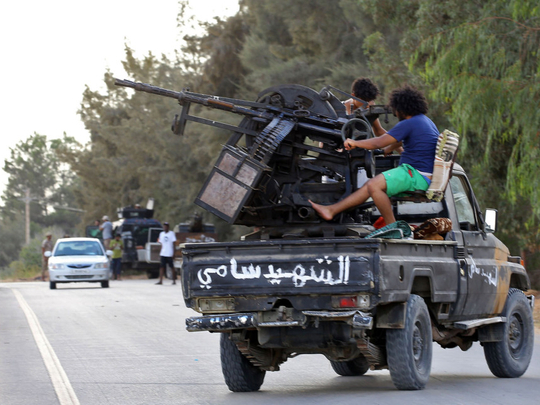
Benghazi, Libya: A recent bout of heavy fighting in the capital Tripoli has come to a halt after warring militias signed a new ceasefire agreement, Libyan authorities said Wednesday.
The UN-backed government said in a statement it welcomed the ceasefire agreement, which was brokered by local representatives and tribal leaders.
Fighting in Tripoli first erupted on August 26 when the 7th Brigade comprised of militias hailing from Tarhouna, a town about 60 kilometres south of Tripoli, attacked southern neighbourhoods of the capital.
The Tripoli Revolutionaries’ Brigades and the Nawasi Brigade, militias which support the UN-backed government, came to the city’s defence. Clashes flared up again last week, breaking a previous, UN-brokered ceasefire that began earlier this month.
At least 117 people, including civilians, have been killed in the fighting and another 404 wounded. Twenty people remain missing since fighting first began there, the Health Ministry said.
In the past two days, 1,700 families have been displaced due to renewed fighting, the UN aid agency said Tuesday. A total of 5,000 families have sought refuge with relatives in safer parts of Tripoli and its outskirts since August 26, the UN Office for the Coordination of Humanitarian Affairs said.
“The clashes have led to a breakdown in basic services such as electricity and water,” UN Humanitarian Coordinator Maria Ribeiro said.
The fighting underscored the country’s lingering lawlessness more than seven years after the uprising that toppled and later killed longtime ruler Muammar Gaddafi. Libya is currently ruled by rival authorities in Tripoli and the east, each backed by an array of militias.












